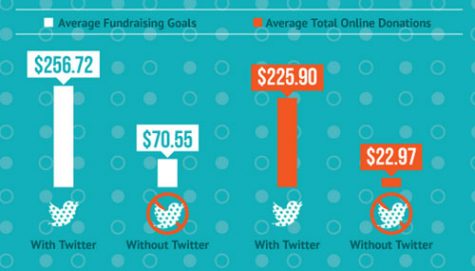Senioritis encourages idleness, prevents strong work ethic
February 2, 2019
When people talk about final semester senior year, they usually think of smooth sailing and cruising without a care in the world. Most have gotten accepted into a college; thus, they think their jobs are done, not giving much thought to their academics. The norm for some high school seniors is senioritis, but flinging yourself down the “senior slide” is not a good idea.
First, there is simply no justification for giving up or letting go of all that you have worked for in the final two quarters. The years
of hard work, stress, and homework should not reach a zenith the final semester of your junior year, and then hit a slow decline only to plummet during your senior.
In addition, there is a popular misconception that once you are accepted into a college that you are in a binding contract. The
sad truth is the shiny acceptance package could be followed by a warning one, and then one revoking your admission.
Though it may be unlikely that your acceptance will be revoked, a serious slip up will certainly catch a university’s eye. When
taking a closer look at acceptance letters, a clause often makes acceptance “conditional upon the successful completion of the final year of high school,” or it may even say something like, “it is our expectation that you remain fully engaged in your studies and other pursuits for the remainder of your secondary school career.”
According to data collected by the National Association for College Admission Counseling, in 2009, 22 percent of colleges revoked admissions. Of the revocations, 65.3 percent were due to a drop in final grades, and the second main reason was due to followed by disciplinary information that either came occurred after the acceptance or incidences discovered that happened before the acceptance.
Even if someone plans to join the workforce, take a gap year, or join the military, the argument to not give into senioritis can still
be made. According to the Bureau of Labor Statistics, the average American works 44 hours per week, or 8.8 hours per day. In the workforce, there is no slipping up on work in its final stages. If you are taking a gap year, prior to applying to colleges, your full transcript will be seen, and showing a college or university that you give up close to completion will not look good. Instead it looks like your success lacks longevity.
Seniors should be able to let up a bit on their stress in their final semester and make some sense given the years of hard work they have put into their studies. However, this does not need to mean senioritis. Instead, It might be spending 30 minutes preparing for a presentation instead of two hours, or taking a day to relax at the end of the week instead of pushing through another day-long study session. It is about reward in moderation, not succumbing to
idleness.
Looking to reward oneself for well-earned accomplishments and completion of four challenging years is not a bad thing, and seniors will be rewarded. They have senior prom, the senior picnic, Derby Day, and countless other senior traditions to look forward to, all of which provide fun and little work. There is no need to take this too far and give up so close to the end.




